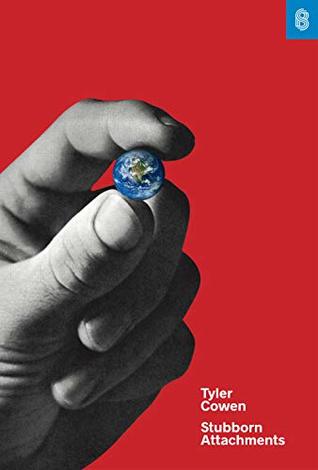More on this book
Community
Kindle Notes & Highlights
by
Tyler Cowen
Read between
October 27 - October 28, 2021
there exists an objective right and an objective wrong. Relativism is a nonstarter, and most people are not sincere in their relativist pronouncements anyway. At some gut level, relativists still they think they know right from wrong; if you doubt this, watch them lecture their kids or, better yet, criticize their colleagues.
We need to be more modest when it comes to what we can possibly know.
If we are building principles for politics, we need approaches which are relatively fortified against human error and the rampant human tendency for self-deception, and which can transcend our own tendencies for excessive “us vs. them” thinking.
In short, my philosophical starting points are: “Right” and “wrong” are very real concepts which should possess great force. We should be skeptical about the powers of the individual human mind. Human life is complex and offers many different goods, not just one value that trumps all others.
do we have legitimate reasons to weight the present more heavily simply because it is the here and now? Does the economic approach to time discounting—which suggests that the future declines in moral importance as it becomes more distant in time, and in rough proportion to market interest rates—apply? (I say no.)
bugged by some pretty common problems from science fiction and speculative fiction. Here’s an example: even our tiniest actions can theoretically set off a chain reaction with far-reaching repercussions. Imagine if Hitler’s father—or how about Caesar’s father?—had arrived one second later to the marriage bed. A different sperm and egg
Common sense morality holds that we should work hard, take care of our families, and live virtuous but self-centered lives, while giving to charity as we are able and helping out others on a periodic basis. Utilitarian philosophy, on the other hand,
Production could be much greater than it is today, and our lives could be more splendid. Or, if we make some big mistakes, production could be much lower, and we could all be much poorer. This simple observation allows us to put the idea of production at the center of our moral theory, because without production, value is problematic. For all of her
work of capital, labor, and natural resources, driven by the creative individual mind, which undergird the achievements of our civilization. Whether or not you agree with all of Rand’s political views, she is correct in her stance that we must not take the existence of wealth for granted.
the individuals who will live in the future should be less distant from us, in moral terms, than many people currently believe. Their interests should hold greater sway over our calculations, and that means we should invest more in the future. Even though it is sometimes hard for us to imagine how our actions will affect future people, especially those from the more distant future, their moral import remains high. I will therefore be asking humans to have greater faith in the future.
hope that you will respond by taking a stronger stand on behalf of the ideals of freedom and prosperity. I hope you will join more firmly in the cause of making our civilization stronger, more durable, and more wondrous. In this book, I suggest that we need a radical reawakening. And
We should pursue large rather than small benefits, and we should have a deep concern for the more distant future rather than discounting it exponentially. Our working standard for evaluating choices should be to increase sustainable economic growth, because those choices overcome aggregation problems and are decisively good. That
Policymakers often make decisions on a day-to-day, case-by-case basis, simply hoping to survive the next election cycle. I don’t mean that as a cynical criticism of human nature; rather, it is an implication of political competition within relatively short electoral cycles relative to the time horizons over which policy matters. (The U.S. House of Representatives has a two-year voting cycle for policies which may have effects over twenty or thirty years, or, in the case of environmental policies, longer still.) That is one reason why
Policy should be more forward-looking and more concerned about the more distant future. Governments should place a much higher priority on investment than is currently the case, in both the private sector and the public sector.
Policy should be more concerned with economic growth, properly specified, and policy discussion
We should be more concerned with the fragility of our civilization.
rule of thumb for present/future trade-offs. We should always be willing to give up a discrete benefit today if in return we can create a sufficiently long string of well-being increases for the future. Yet the criterion does not specify any single numerical or universally applicable discount rate. We can write the following: The Overtaking Criterion: A sequence g∞ = (b1, b2, …) is preferred to h∞ = (a1, a2, …) if one sequence, at some point in time, remains systematically higher than the other.
Parfit’s repugnant conclusion compares two population scenarios. The first outcome has a very large, very fulfilled, and very happy population. The world also has many ideal goods, such as beauty, virtue, and justice. The second outcome has a much larger population but few, if any, ideal goods. Parfit asks us to conceive of a world of “Muzak and potatoes.” Nonetheless, the lives in this scenario are still worth living, although
“The Repugnant Conclusion. For any possible population of at least ten billion people, all with a very high quality of life, there must be some much larger imaginable population, whose existence, if other things were equal, would be better, even though its members have lives that are barely worth living.”3


